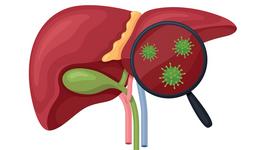SyNTase Gene Editor Corrects Antitrypsin Deficiency In Vivo
CMN Intelligence - The World’s Most Comprehensive Intelligence Platform for CRISPR-Genomic Medicine and Gene-Editing Clinical Development
Providing market intelligence, data infrastructure, analytics, and reporting services for the global gene-editing sector. Read more...
AATD most often arises from the SERPINA1 Z allele, which substitutes glutamate for lysine at position 342 (E342K) in the alpha-1 antitrypsin (AAT) protein. Patients with two copies of this variant (ZZ) accumulate misfolded Z-AAT in the liver and lack sufficient functional inhibitor in the blood, predisposing to fibrosis, cirrhosis and emphysema. Weekly intravenous augmentation raises AAT levels but does not correct the genotype or address hepatic polymer accumulation.
CTX460 packages the SyNTase editor in lipid nanoparticles that target hepatocytes. Once inside the liver, SyNTase rewrites the pathogenic base to restore the wild-type M sequence at the DNA level, enabling production of correctly folded AAT.
At the European Society of Gene and Cell Therapy Annual Congress, CRISPR Therapeutics reported studies in two models: NSG-PiZ mice harbouring human SERPINA1 Z alleles, and a humanised PiZ rat in which the rat gene is replaced with the human E342K variant.
A single dose produced dose-dependent DNA correction in both species, with near-saturating hepatocyte editing at doses as low as 0.1 milligrams per kilogram. In PiZ mice, a clinically relevant 0.5 milligrams per kilogram achieved greater than 90 per cent mRNA correction.
Alpha-1 antitrypsin deficiency (AATD)
AATD is a genetic disorder affecting approximately one in 2,500 individuals of European descent, though it remains underdiagnosed. The condition arises most commonly from a mutation in the SERPINA1 gene known as the Z allele, which produces the amino acid substitution E342K. Patients with two copies of this variant, termed the ZZ genotype, experience the most severe disease manifestations. The mutation causes the alpha-1 antitrypsin (AAT) protein to misfold in the liver, where it is produced, creating polymers that accumulate and can contribute to liver fibrosis and cirrhosis.
Simultaneously, insufficient functional protein reaches the bloodstream, leaving the lungs vulnerable to damage from neutrophil elastase, an enzyme that degrades lung tissue when not properly regulated. This dual pathology means patients face risks of both progressive lung disease, particularly emphysema, and liver disease.
Current treatment consists of weekly intravenous infusions of purified functional AAT protein derived from human plasma. Whilst this augmentation therapy can slow lung disease progression by raising circulating protein levels, it addresses only the symptomatic consequences rather than the underlying genetic cause. Patients with the ZZ genotype typically have serum AAT levels around 5 to 6 micromolar, compared to normal levels exceeding 20 micromolar in individuals with functional gene copies. The lifelong burden of weekly infusions and the failure to address liver pathology or fully normalise protein levels highlight the need for curative approaches.
In the rat model, total serum AAT increased more than five-fold from pre-dose values, and the M-AAT:Z-AAT ratio in serum exceeded 99 per cent, indicating near-exclusive production of the corrected protein. Protein rescue scaled linearly with editing efficiency, and edited alleles were maintained through the study windows (up to seven weeks in rats and nine weeks in mice).
»The goal of therapy should be to normalise alpha-1 antitrypsin levels,« said Naimish Patel, Chief Medical Officer at CRISPR Therapeutics, noting that SyNTase aims to correct the mutation »with precision and efficiency.«
CTX460 is the first investigational candidate from SyNTase. While the company has not yet disclosed the platform’s enzymatic architecture, the data support precise single-nucleotide correction in vivo. Compared with gene addition, allele repair offers the prospect of restoring native regulation while reducing production of misfolded Z-AAT, a key driver of liver injury.
The planned mid-2026 clinical study will need to address durability over years, genome-wide off-target effects and translation of the protein gains seen in rodents to human physiology.
The research was conducted by CRISPR Therapeutics and presented at the European Society of Gene and Cell Therapy 2025 Annual Congress on 10 October 2025.
To get more CRISPR Medicine News delivered to your inbox, sign up to the free weekly CMN Newsletter here.
Tags
ArticleNewsClinical News UpdatesIn vivoLipid-based nanoparticleAlpha-1 Antitrypsin Deficiency, AATDLiver diseasesCRISPR Therapeutics AGPre-clinical
CLINICAL TRIALS
Sponsors:
Base Therapeutics (Shanghai) Co., Ltd.
Sponsors:
Base Therapeutics (Shanghai) Co., Ltd.







